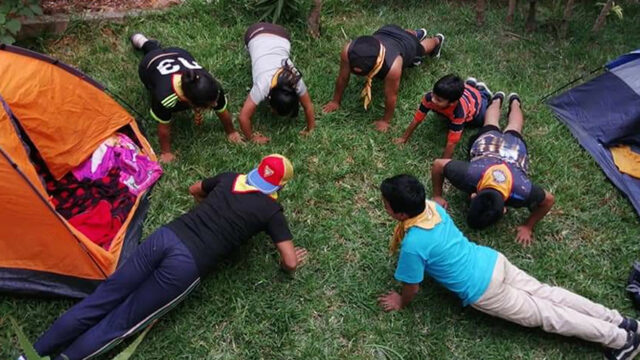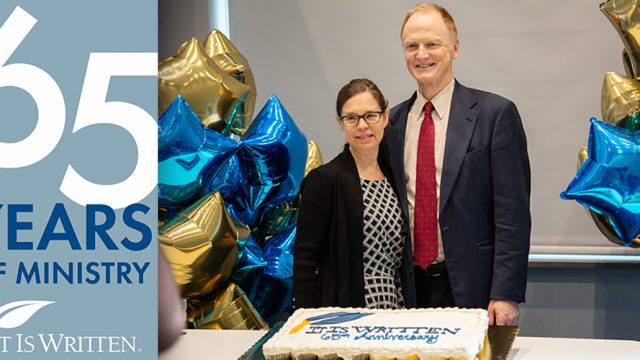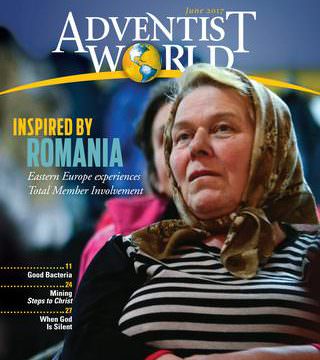For the first time, leaders meet outside the territory to streamline regional partnerships.

The year-end meetings of the Division Executive Committee (DEC) of the Seventh-day Adventist Church’s South Pacific Division (SPD) began November 11 with a focus on strengthening missional impact.
Held in Chiang Mai, Thailand, the meetings will further solidify the partnership between the SPD, which covers Australia, New Zealand, and the South Pacific islands, and the Southern Asia-Pacific Division (SSD), the SPD’s closest neighbor, leaders said. This is believed to be the first time the year-end meetings have been held outside the SPD.
SPD president Glenn Townend emphasized the purpose of gathering in Thailand, highlighting the Adventist Church’s 150-year commitment to mission. “We are here in Thailand because we are a missionary movement,” he said. “Our partner, the Southern Asia-Pacific Division, faces huge challenges in reaching majority Muslim and Buddhist regions. We are here to help as part of Mission Refocus.”
With one Adventist for every 55 people, the SPD has the highest ratio of Adventists to population in the world. Townend stressed, however, the need for SPD members to look beyond their own borders and support mission work in other regions.
“We have to lift our eyes and see that there is more to mission than in our own little backyard,” he said. “If we are serious about our vision of becoming a thriving disciple-making movement, that movement has to go beyond our borders. Those borders are put there by governments, churches, and so on. But God has no borders.”
The SPD’s connection with its neighboring territory dates back many decades. The Australasian Union Conference (a precursor to the SPD) once included Singapore, Java (Indonesia), and the Philippines, and the first Adventist missionary to arrive in Thailand was an Australian, in 1905.
SSD leaders have warmly welcomed the partnership as they face significant challenges in their mission work. Cambodia, Laos, and Thailand have some of the highest concentrations of Buddhists in the world, with Christians comprising 1.5 percent or less of their populations. Political unrest along Thailand’s western border, combined with limited communication and transportation, adds further complexity to mission efforts.
Over the weekend, DEC members had the opportunity to engage with local Adventist church communities. In small groups, they visited 15 churches throughout Chiang Mai on Saturday (Sabbath), leading out in the worship services before being hosted for lunch. On Sunday, they furthered these connections with visits to ADRA Thailand’s Keep Girls Safe Project, an orphanage, and the Chiang Mai Adventist Academy.
The DEC meetings officially began yesterday, attended by General Conference leaders, including vice president Pierre Omeler, associate secretary Gerson Santos, and associate treasurer George Egwakhe. Reports were presented by the SPD secretary and CFO, as well as the leaders of Adventist Media, Sanitarium, Sydney Adventist Hospital, and Pacific Adventist University. Union leaders also shared updates from their territories.
The DEC approved the SPD’s strategic plan for the 2025-2030 quinquennium, aligning with the General Conference’s “I Will Go” strategy. The SPD’s plan includes four key pillars: (1) I Will Go on God’s mission; (2) I Will Go with God; (3) I Will Go in the power of the Holy Spirit; and (4) I Will Go because Jesus loves me. The “SPD for Christ” evangelism program was also approved, with a phased rollout: 2026 for the Trans-Pacific Union Mission; 2027 for the New Zealand Pacific Union Conference; 2028 for the Australian Union Conference; and 2029 for the Papua New Guinea Union Mission. Prayer played a central role throughout the meetings, underscoring the church’s commitment to seeking God’s guidance and leading in all matters.
Santos praised the partnership between SPD and SSD. “The SPD is in a perfect position to help other divisions like SSD because of the diversity within your territory and the variety of methods you’ve developed to reach different groups,” he said. Santos commended the SPD’s commitment to Mission Refocus, noting that the experience gained by SPD missionaries will bring renewed energy when they return home.
With a population of more than 1.3 billion people, the SSD encompasses 11 countries: Indonesia, Thailand, Cambodia, Singapore, the Philippines, Brunei, Vietnam, Malaysia, Timor-Leste, Myanmar, and Laos.
The original version of this story was posted by Adventist Record.












